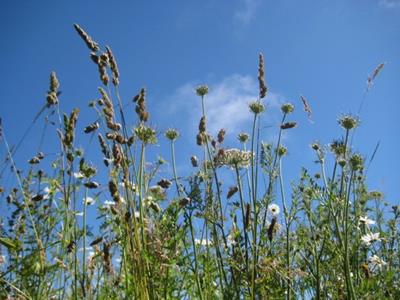 Education for the Future We Want: Working from Authentic, Grounded Hopefulness
Education for the Future We Want: Working from Authentic, Grounded Hopefulness
David Selby gave this presentation at the Collective Working Meeting of the Partnership for Education and Research about Responsible Living (PERL), Marseille, France, 8 March 2013. David spoke about the necessary evolution from education for sustainable development to education for sustainable moderation given the challenges faced globally, critiquing the Future We Want outcome document of the Rio+20 U.N. Conference on Sustainable Development.
To see the PowerPoint slides used, click here.
A Global Mapping of Disaster Risk Reduction Curriculum
Fumiyo Kagawa and David Selby made this presentation at a parallel session of the 4th International Disaster and Risk Conference, ‘Integrative Risk Management in a Changing World’, to be held at Davos, Switzerland from 26-30 August 2012. The panel on Education for Disaster Risk Reduction discussed different approaches to and aspects of disaster risk reduction education. It took place on Monday 27 August, 2:40 – 4:10pm.
Integrating Disaster Risk Reduction into the Curriculum: A Technical Guidance Tool
Fumiyo Kagawa and David Selby made this presentation at a parallel session of the 4th International Disaster and Risk Conference, ‘Integrative Risk Management in a Changing World’, to be held at Davos, Switzerland from 26-30 August 2012. The panel on Education for Disaster Risk Reduction discussed different approaches to and aspects of disaster risk reduction education. It took place on Monday 27 August, 2:40 – 4:10pm.
Deep Climate Change Education: Learning and Teaching for Personal and Social Transformation
In this Green Teacher Webinar, building on their fall 2011 article in the magazine, Fumiyo Kagawa and David Selby critique mainstream manifestations of climate change education as a shallow and insufficient response to the global and human condition. They offer an elaboration of ‘deep climate change education’ that examines values issues, explores the dynamics of climate change avoidance and denial, investigates the complicity of economic growth in fomenting climate change while cultivating intimacy with nature, an ethic of denizenship, and commitment to global climate justice. The links between climate change education, sustainability education and disaster risk reduction education are explored, deep climate change education being exemplified through descriptions of practical activities.
 Teacher training in climate change education is in its infancy
Teacher training in climate change education is in its infancy
EduInfo, the Education Sector newsletter of UNESCO for July/August 2011 features an interview with Fumiyo Kagawa and David Selby of Sustainability Frontiers about the new Teacher Education Course on Climate Change Education for Sustainable Development (CCESD) they have developed for UNESCO that will become available in late-2011. The course is tailored for four regions: Africa, Asia, Small Island Developing States (SIDS) and Europe/North America.
Systems Change: Education systems may not be able to provide transformative thought
David Selby was interviewed by Samantha Power for the special education edition of VUE Weekly, Edmonton, Canada’s independent and alternative news source. The interview appears in the 3 November 2010, Issue #785.
The Four Dimensions of Global Education: Implications for the Global Teacher and Global Learner
David Selby attended the September 28-29 2010 Cambridge International Examinations’ 6th Annual Teachers’ Conference, Educating the Global Learner, held at Robinson College, University of Cambridge, and delivered the 28 September opening keynote address. His address was delivered to some 225 delegates from around the world and CIE staff.
The Real Meaning of Sustainability
When David Selby attended and spoke at the Blueprints for Change 2007 Sustainability Festival held at Concordia University, Montreal, Quebec, Canada, Don Kossick interviewed him for the Making the Links radio show (‘radio with a social conscience’). Described as a ‘revolutionary and innovative thinker on sustainability and confronting global warming,’ David discusses the meaning of sustainability as securing a healthy economy, environment and society for present and future generations. He asserts that sustainability must be based on the idea of social and environmental justice for healthy and peaceful lives. The interview took place on 6 June 2007.
